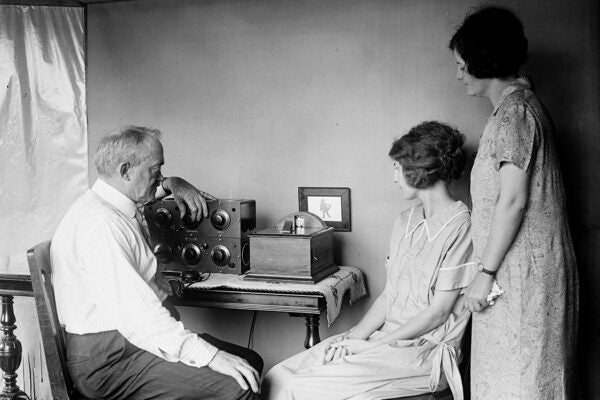Tyler S. Sprague on the Intersection of Structure and Design
An interview with Tyler S. Sprague, a historian of the built environment whose work depends on multidisciplinarity and a deep knowledge of structure and materials.
How Was the Wheel Invented?
Computer simulations reveal the unlikely birth of a world-changing technology nearly 6,000 years ago.
Phantoscopes, Radiovision, and the Dawn of TV
After creating a projector called the Phantoscope in 1895, C. Francis Jenkins successfully tackled the problem of transmitting motion pictures through radio.
One Thousand Years of Domelessness
For more than 900 years, between the fifth century and the Renaissance, Romans didn’t cap their buildings with domes. Why?
Talking with Machines: Computer Programming as Language
The proliferation of different types of computing machines in the 1950s enabled—or perhaps forced—the creation of programming languages.
Electric Fish and the First Battery
Allesandro Volta invented the voltaic pile, the earliest electric battery, in part because of his investigations into the torpedo, an electric ray fish.
Gray’s Music: Over the Telegraph
Inventor of the telephone Elisha Gray also pioneered the world’s first purpose-built electric musical instrument.
The Trouble with Reentry
Reentry of space junk in the 1970s forced First Nations communities into a reckoning with Cold War geopolitics and a burgeoning envirotechnical disaster.
Expanding the Possibilities for Preservability
A new tool from NYU Libraries helps authors, publishers, and preservation specialists assess the preservability of evolving digital scholarship.
Robert FitzRoy and the Laws of Storms
When FitzRoy distributed barometers to local fishing communities, he empowered individual sailors to use their own judgment about the weather forecast.









